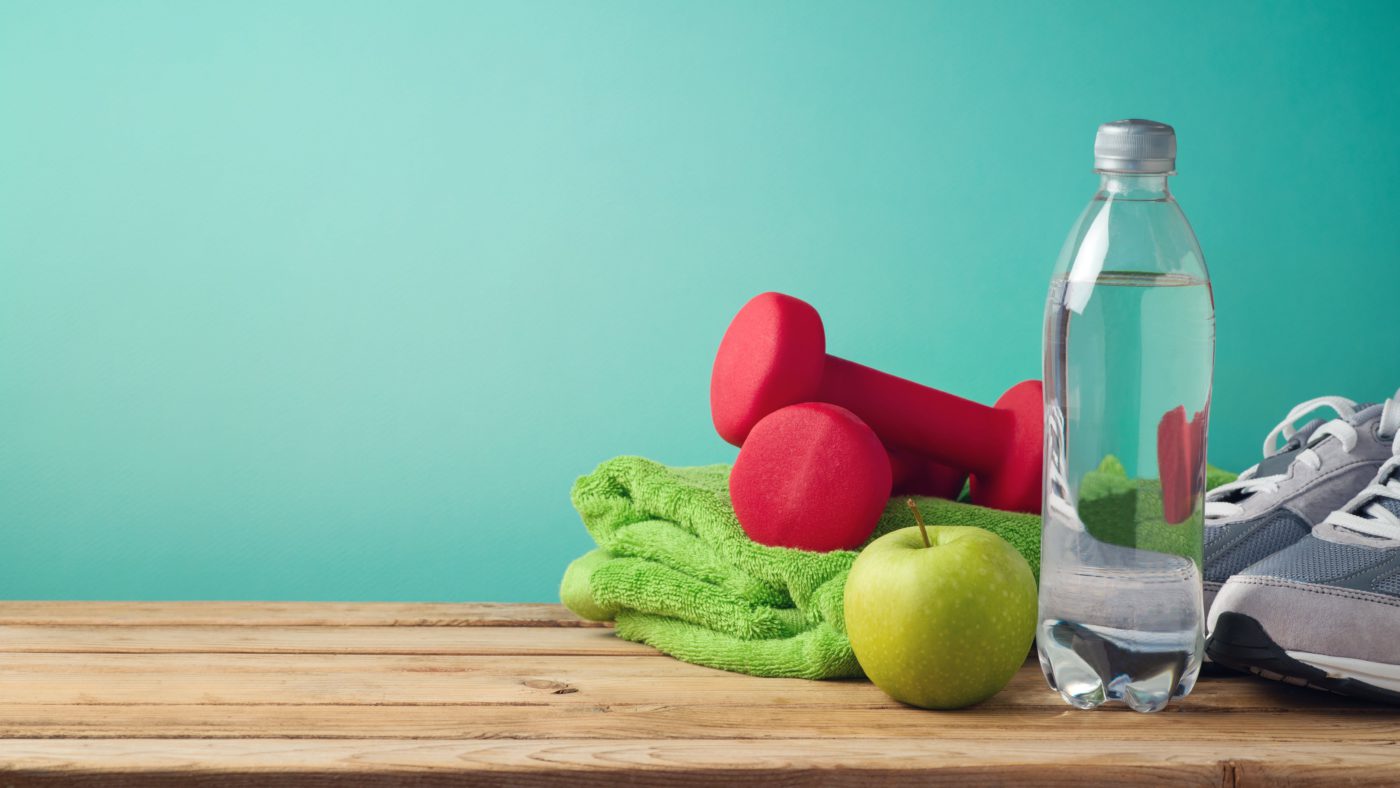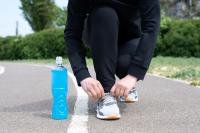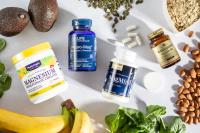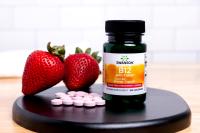How electrolytes affect hydration, sports performance and overall wellbeing
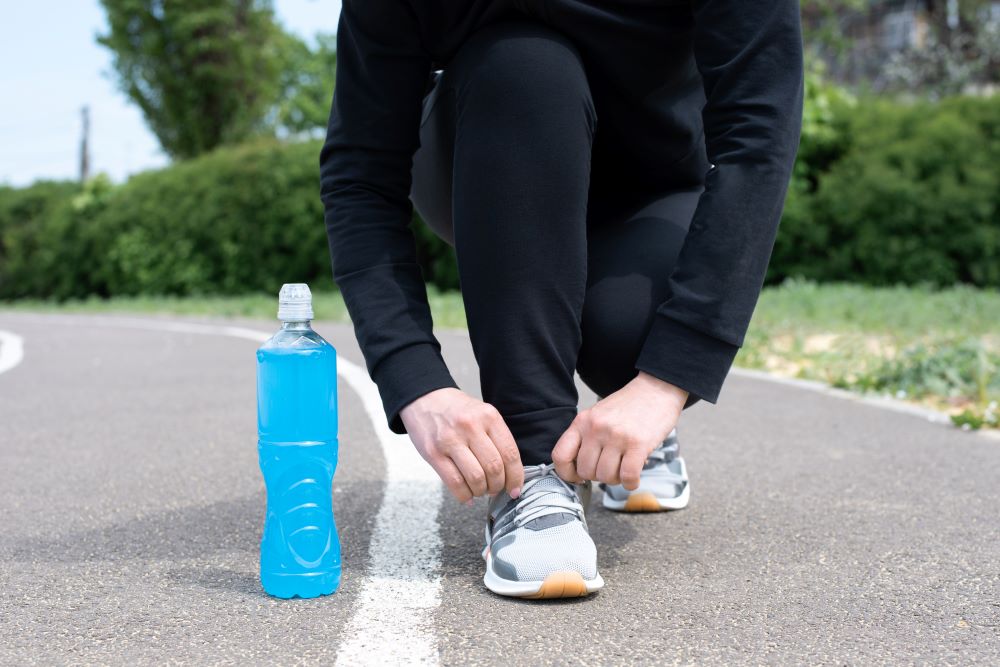
Electrolytes are minerals such as sodium, potassium, calcium, magnesium, chloride, and phosphate. These minerals carry an electric charge when dissolved in bodily fluids, allowing them to facilitate important processes like nerve transmission and muscle contraction. Sodium and chloride are primarily responsible for maintaining fluid balance, nerve function, and blood pressure regulation. Potassium is essential for proper muscle and heart function, while calcium and magnesium are crucial for bone health, muscle contractions, and enzyme activity.
This blog will introduce you to the basics of electrolytes, what they are and why they're important, their impact on our hydration, how they can help with muscle cramps, and how supplementation can influence our effort and performance.
Electrolytes
Electrolytes are essential minerals that carry an electrical charge when dissolved in water, and they play a crucial role in our overall well-being. Sodium, potassium, magnesium, chloride, and phosphate are among the key electrolytes that our bodies require to function optimally.
Maintaining Physiological Functions
Electrolytes are involved in a wide range of physiological functions that are vital for our bodies. They help regulate fluid balance, ensuring optimal hydration levels. Electrolytes also support our nerve and muscle function, enabling proper communication between cells and facilitating muscle contractions. Additionally, they participate in various metabolic processes, such as ATP production and protein synthesis, which are essential for energy production and tissue repair.
Exercise and Electrolyte Loss
During exercise, we lose water and electrolytes through sweat. The amount of electrolytes lost depends on factors like environmental temperature, exercise intensity and duration, and individual sweat rates. Some of us naturally sweat more and excrete more electrolytes than others. Therefore, we need to ensure any prescription / supplementation matches our own needs.
How Dehydration Affects Performance
If we fail to replenish the fluids lost through sweat during prolonged exercise, we can become dehydrated, which can significantly impact our performance. Research indicates that poor hydration can decrease strength by approximately 2%, power by about 3%, and high-intensity endurance by around 10%. Therefore, maintaining proper hydration is not only crucial for cardiovascular performance but also for strength and power.
Electrolytes for Optimal Performance
Given the vital role electrolytes play in our fluid balance, muscle contraction, and hydration, electrolyte supplementation has gained popularity. Offering better hydration, improved performance, expedited recovery, and reduced cramping.
More About Electrolytes and Hydration
When it comes to our hydration, we want to ensure that electrolyte supplementation offers tangible benefits over simply drinking water. Numerous studies have explored the impact of electrolyte supplements and water on hydration status, shedding light on their effectiveness. One study found that supplementing electrolytes with carbohydrates can be more effective for rehydration, particularly for individuals with high sweat rates during exercise than consuming water alone. Plus, the benefits following exercise have also been shown. The results of a second study revealed that an electrolyte rich product significantly improved fluid retention compared to a sports drink or water, indicating its superiority in post-exercise rehydration. These findings highlight the potential benefits of electrolyte-rich solutions for optimal hydration after exercise.
The Importance of Concentration
The concentration of electrolytes and carbohydrates in drinks plays a crucial role in their hydrating effects. Hydration drinks can be categorised into three main types based on their concentration: hypertonic, isotonic, and hypotonic. Hypertonic drinks have a higher solute concentration than our body's fluids, isotonic drinks have a similar concentration, while hypotonic drinks have a lower solute concentration than our body's fluids. Interestingly, lower-concentration, hypotonic beverages containing electrolytes and carbohydrates have shown superior hydrating effects compared to those without carbohydrates and with higher concentrations. This suggests that the concentration of electrolyte drinks is a vital factor that affects our hydration.
Muscle Cramping
Many of us struggle with muscle cramps to varying degrees. These cramps can be incredibly painful, uncomfortable, and can significantly impact your training sessions, or prevent you from reaching your fitness goals. When we exercise intensely, especially in hot and humid conditions, we lose electrolytes through sweat. This loss of electrolytes can lead to imbalances in our body, potentially triggering muscle cramps.
Research supports the benefits of electrolyte supplementation to ward off cramping. One study showed that athletes who consumed an electrolyte beverage experienced a significant reduction in the frequency and severity of muscle cramps compared to those who consumed a placebo. In cramp prone individuals, investigators also discovered that participants who received electrolyte supplementation had a significantly lower incidence of muscle cramps during exercise compared to those who did not receive supplementation. Such findings suggest that electrolyte supplementation may be an effective strategy for preventing our muscle cramps and enhancing our athletic performance. By supplementing with electrolytes, we can replenish the minerals lost during exercise and maintain our optimal electrolyte balance. This, in turn, may help prevent muscle cramping and improve our overall performance.
Perceived Effort and Performance
When we're dehydrated, the same level of exercise intensity can feel much harder. Supplementing with electrolytes could help address this issue.
Research shows that as we become dehydrated our perceived exertion increases. This difference can be substantial and may affect the weights we can lift or how fast we can run. Products containing electrolytes (and carbohydrates) can replenish lost fluids and provide essential electrolytes to improve hydration. This in turn can help us to push ourselves harder and experience improved performance.
Supplementation
When considering electrolyte supplementation, it's crucial we choose high-quality products that provide a balanced blend of essential electrolytes. Look for reputable brands like Trace Minerals, that prioritise quality and transparency in their formulations. Additionally, consider the specific needs of your body, such as the intensity and duration of your workouts, sweat rate, and individual preferences. We have a range of options from Trace Minerals including powders, tablets, capsules, and electrolyte-enhanced beverages.
Remember, electrolyte supplementation should be complemented by a well-rounded approach to hydration. Adequate fluid intake, both during exercise and throughout the day, is essential for maintaining our hydration and supporting optimal muscle function.
In conclusion
Electrolytes are essential minerals that play a crucial role in our overall well-being, fluid balance, and muscle function. Electrolyte supplementation, particularly when combined with carbohydrates, can enhance hydration, improve performance, expedite recovery, and reduce muscle cramps. Studies have shown that electrolyte-rich solutions with lower concentrations can have superior hydrating effects. Additionally, electrolyte supplementation can help prevent muscle cramping and reduce perceived exertion during exercise, leading to improved performance. When choosing electrolyte products, it's important to prioritise quality, transparency, and individual needs, choose Trace Minerals. Remember to complement supplementation with adequate fluid intake for optimal results.



